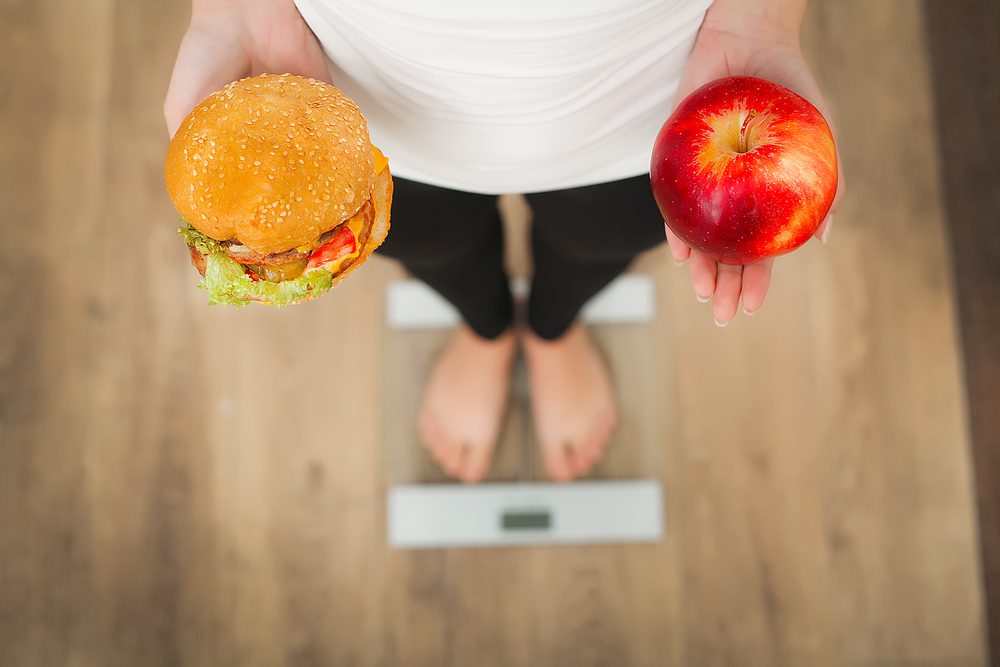Is vegetarianism better than other diets? These vegetarianism facts will amaze you!
For a lot of people, a plant-based diet is a healthy choice. But is this 100% true? Well, as with any other topic, there are some myths about this one too. In this episode of Science in the World, we dig into the details and see what scientists discovered related to vegetarianism.
Vegetarianism and veganism were both historically seen as extreme lifestyle choices in the United States, and a lot of people blamed those who decided to adopt them.
Now, buckle up, because we’re about to discuss all the vegetarianism facts that are more or less…false. And then, it will be up to you if you want to adopt this lifestyle or not.

1. Vegetarianism will help you lose weight
Contrary to what you would wish to think, not all diets that are vegan or vegetarian are equally healthy. It is really simple to eat millions of calories every day without any of them having any connection to animals. Healthy eating and regular exercise are the keys to losing weight; neither necessitates abstaining from animal products.
However, the data showing that eating a plant-based diet is linked to weight loss is still important to take into account, especially for those who suffer from diabetes.
2. Plant-based diets are healthier than ones that contain meat
One of those vegetarianism facts that everybody believes is that they are healthier than others. More research in recent years has shown associations between eating red meat and having worse health outcomes. For instance, the consumption of processed and red meat is linked to diabetes, obesity, heart disease, colon cancer, and other diseases.
This may imply that a vegetarian diet is healthier for the body, but that couldn’t be more wrong. Let’s use a real-world example: if someone exclusively ate potato chips, they would be vegan, but they would hardly be bursting with life, energy, and health.
As with any other diet, it depends solely on what the person eats on a daily basis. According to various sources, a veggie burger contains more salt than a small portion of fries.
3. Vegetarianism won’t give you the amount of energy you need throughout the day
The third item on the list of vegetarianism facts is definitely mind-blowing. A lot of people think that having a vegetarian diet isn’t healthy and nutritious enough to give you the energy to get through the day. But this is another myth about this lifestyle!
It is a popular belief that animal protein is required for the growth of muscles and that vegan diets are restricted and deficient in nutrients. However, several vegan and plant-based athletes provide live disproof of this myth. Vegan diets provide health advantages in addition to being nutritious and healthy.
4. Vegan and vegetarian dishes don’t have enough protein!
This is probably one of the most common vegetarianism facts we will discuss in today’s article. Protein is a nutrient that can be found in a wide variety of foods, so it is difficult to completely avoid consuming it. No matter whether it’s a fruit or a vegetable!
For example, eggs and dairy (for those who enjoy consuming them) are great sources of protein. But on the other hand, chickpeas, several varieties of beans, wild rice, nuts, seeds, and quinoa are some top-notch alternatives for vegans. Broccoli, potatoes, peas, brussels sprouts, spinach, and sweet potatoes are just a few examples of plants that contain protein.
However, it goes beyond protein. You should be cautious to ensure you’re receiving enough iron, calcium, and vitamin B-12 when eating a vegan or vegetarian diet.
While it is simpler to obtain protein, vegetarians, and vegans must search for fortified foods such as cereals, whole-grain bread, and kinds of pasta. Simply keep in mind that many of them include a lot of added sugar!
5. Dairy is essential for strong bones, so if you are a vegetarian you must take supplements to compensate for the lack of calcium
Throughout our research, we were amazed by how poor people think of vegetarians and vegans. That’s why we were determined to approach this topic. And one of the most shocking vegetarianism facts we read about is that many individuals believe that consuming dairy is essential for having strong bones and preventing breaking. But is this really true?
Calcium is more important for healthy bones than dairy. Calcium is essential for many body processes, including blood clotting, muscular contraction, blood pressure regulation, and signal transmission through neurons.
So where can you find calcium if you are following a vegetarian diet? From sources that are derived from plants. And the best calcium sources are chia seeds, almonds, spinach, lentils, beans, and soy-based foods. This takes us to the next main point of our article…
6. Soy increases the risk of cancer
No evidence eating soy products as a vegetarian leads to cancer, despite the widespread belief in this myth. But who started these false rumors?
This misinterpretation can be the result of prior rat experiments. They were shown to be more susceptible to breast cancer when given high doses of isoflavones, a kind of soy component. However, compared to rats, humans digest soy differently.
Recently, around 2020, another study was conducted that demonstrates there is no association between soy intake and breast cancer, and they found something even worse: apparently dairy milk is linked to breast cancer.
But in fact, you’re more likely to develop breast cancer based on your family background than if you consume certain foods.

7. Vegan and vegetarian food is bland and…boring
If you were one of those people who thought about vegetarian or vegan food take a closer look at this picture. I don’t know about you, but for us, it’s definitely mouth-watering! Our desire to eat particular meals is greatly influenced by how they are prepared, and this also helps to offset the potential blandness of other dishes.
Therefore, it is best to try out various cuisines and dishes to determine what suits you and which ones you like the most. You might be surprised!
If you are curious about vegan and vegetarian food and this article about vegetarianism facts changed your opinion about this topic and you’re willing to try out some healthy recipes, you can start with this book: The Ultimate Plant-Based Cookbook 2023: 1600+ Days of Easy, Mouthwatering, and Nutrient-Rich Recipes for Beginners. It’s available on Amazon for just $3.14 for the Kindle version.
8. This particular lifestyle is pretty expensive
One of the few vegetarianism facts that people tend to take as true is about how pricey the items are. And the concern is valid since, with this inflation, nobody wants to wreak havoc on their budget!
In addition to being excellent suppliers of amino acids and mainstays in vegan and vegetarian cooking, rice and beans are also inexpensive. And a lot of traditional ingredients in supermarkets are also rather cheap!
If the cost of fresh veggies is expensive for you, you might try the equally nutrient-dense frozen varieties. Depending on the retailer you prefer to supply, buying in bulk is also an option, especially if you have a larger family that’s willing to adopt this lifestyle.
Would you become vegan or vegetarian? Let’s talk about this in the comments section down below!
If reading about vegetarianism facts tickled your curiosity and you’re in for more scientific topics you are in the right place! Hit that subscribe button if you are new to our community and let us deliver you top-notch content via e-mail. And in case you change your mind you can unsubscribe anytime you want to!
Before leaving you may also want to read The World in 2100. Here’s What Scientists Think.














